At most public universities everyone’s salary is a matter of public record. It’s always fascinated me that we don’t talk about this more often. It means it is straightforward to look at the total variance in people’s salaries in the same role and test different ideas for what might explain the differences in compensation between different people in the same role. So let’s take a look!
In my own department there are ~45 faculty with research appointments and entries in our school’s 21-22 salary database: Eight assistant professors, fifteen associate professors, and twenty-one full professors. Since assistant professors want to get promoted to associate professor and associate professors want to get promoted to full professors, the simplest model I can think of is to look at how well professor rank predicts salary.
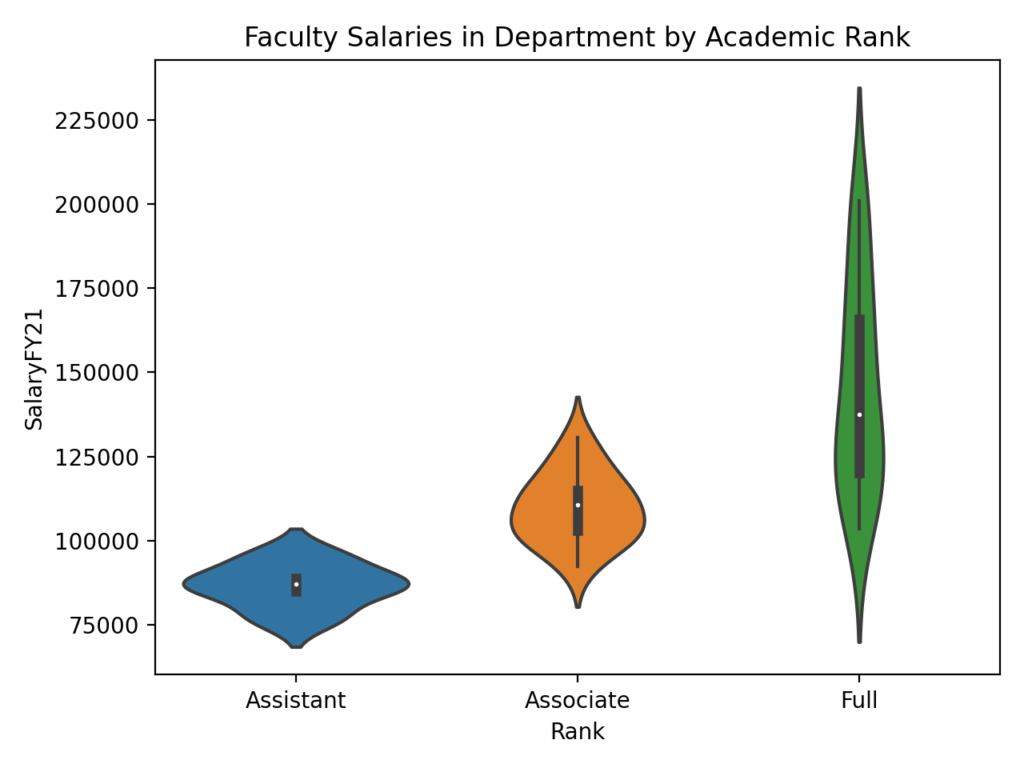
Okay, so our extremely naive model is clearly on to something: average salary increases as people get promoted. But also salaries are much more widely distributed amongst full professors than among assistant professors. Lots of things that could be driven by. But what about the classic “let’s boil down research productivity to a single metric”: the h-index? Only 36 of the 45 professors in my department have google scholar profiles. But that’s not the big problem.
The big problem is that, after controlling for rank, I don’t see ANY relationship between h-index and salary.
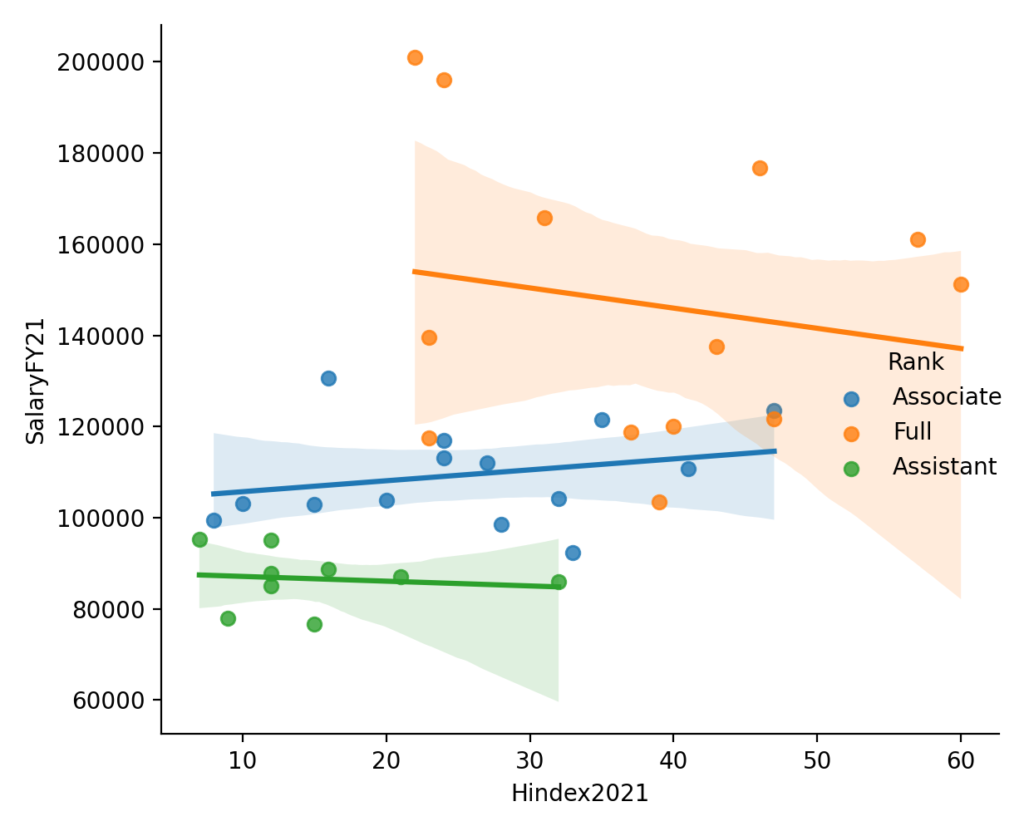
However, one of the big knocks against the h-index is that it takes a long time for papers to accumulate lots of citations, so the h-index turns out to be a really good predictor of how many years a person has been scientifically active. And that’s true in our department’s case as well. Here’s the relationship between h-index in my department and the year each person earned their PhD.
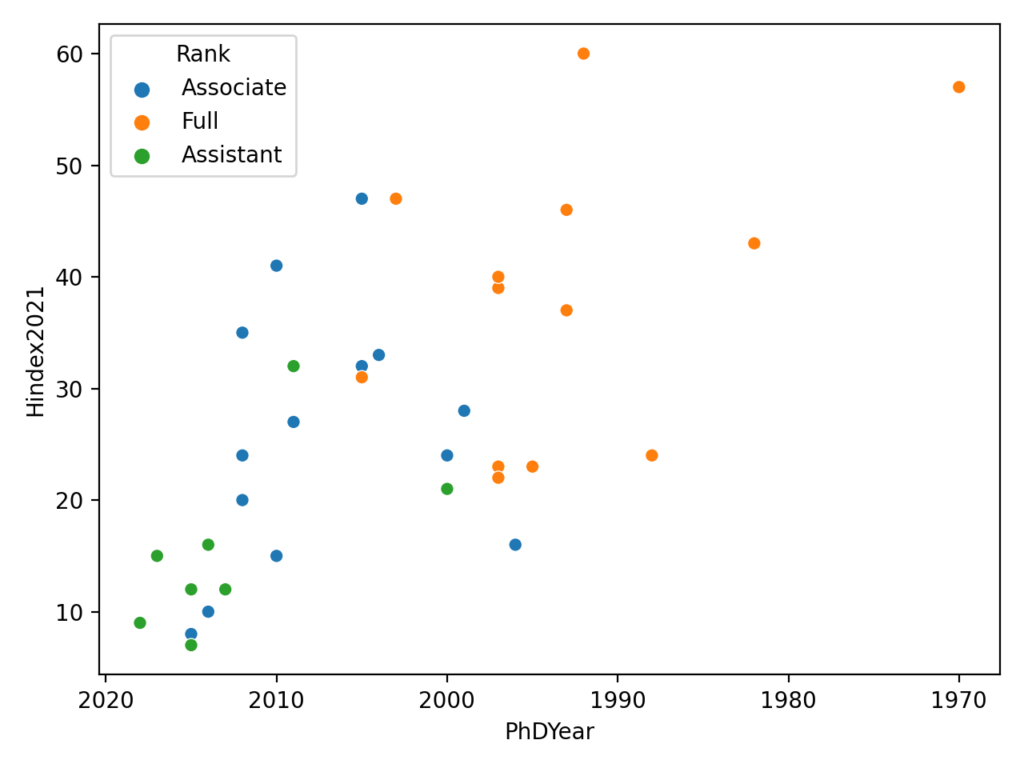
So one of the things this graph starts to convey is that full professors have a broader age distribution than assistant or associate professors. Which makes sense now that I think of it. If a person is hired as an assistant professor at 30, in principle they could promoted to associate professor seven years later at 37, to associate professor seven years after that at 44 and then could be a full professor until they retire sometime between 65 and 75. So about 65% of their time as a faculty member would be as a full professor and about 18% each as assistant professor and an associate professor. What if, instead of faculty rank, we just looking at people’s seniority as a predictor of salary.
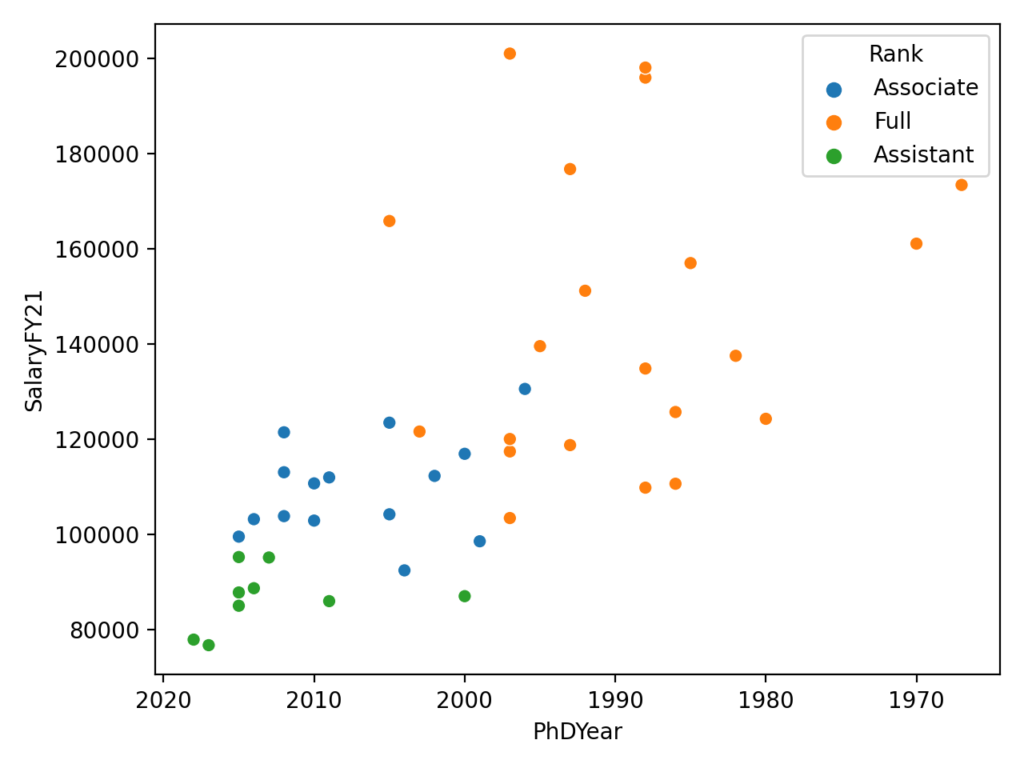
This is starting to look a bit better. But there are still definitely some high outliers among the full professors. As an associate professor I’m curious how I could become one of those folks! … after a bit of investigation, those are mostly folks who either have/had an administrative appointment (department chair, center director, etc), or a presidential endowed chair (the highest grade of endowed chair, supported by several million dollars each, comes with a significant pay bump. … sadly my department does not have a presidential chair for corn, so I’m fresh out of luck on that one). If I remove people who direct centers or lead departments …
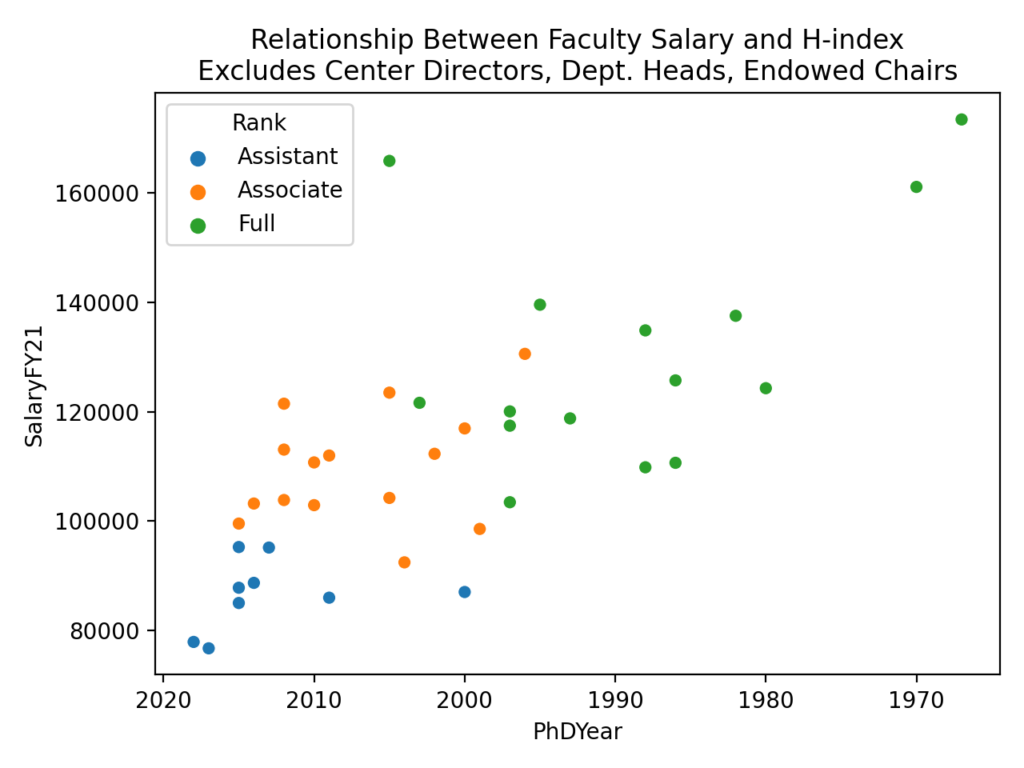
Now we’re starting to get somewhere. After excluding center directors, department heads, and presidential chairs, the r^2 between the year people in my department got their PhD and their current salary is 0.47.
So you heard it here folks, the three ways to take your income as a professor to the next level:
- Be willing to go into administration. These roles seem to come with a significant pay bump. (From the outside looking in, it also seems to come with multiple times more stress. Personally that doesn’t seem worth a 25-30% pay bump, but your mileage may vary)
- Work in an area where your department happens to have a multi-million dollar endowment. (Or alternatively, find a donor who wants to give your university millions of dollars to support the type of research you already do. 😉 )
- Eat healthy, get plenty exercise, and live a long full life. (Avoiding stress also helps with longevity, but you’re doing academic research, so let’s be realistic here.)